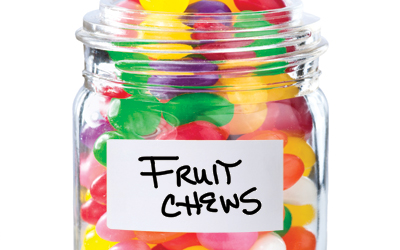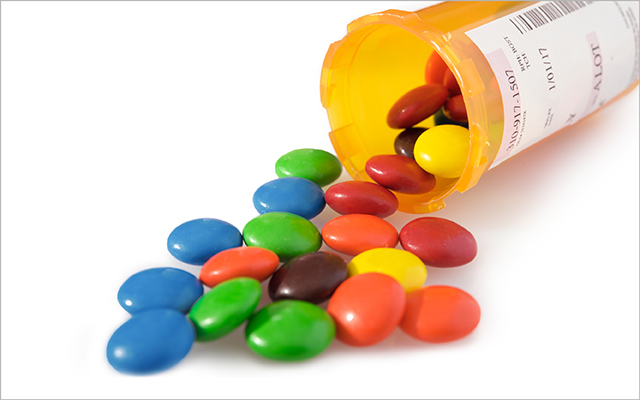Would a “fruit chew” by any other name taste as sweet? New research suggests that many people put a surprising amount of faith in such labels.
Fruit vs. Candy Chews
According to a series of studies recently published in the Journal of Consumer Research, simply changing the name of a less-than-healthy food causes people who are consciously trying to lose weight to rate it as healthier, find it tastier, and consume more of it.
In one study, dieters shown a photo of assorted vegetables tossed with pasta shells, salami, mozzarella cheese and a vinaigrette atop a bed of romaine lettuce called a “salad special” were more likely to describe it as a healthy option than when the same meal was called a “pasta special.” Similarly, dieters given jellybeans called “fruit chews” were more likely to describe them as healthy and tasty (and to eat more of them) than dieters given an identical snack called “candy chews.”
People who weren’t watching their weight did not show significant differences in perceptions or consumption of the differently named items.
Lead author Caglar Irmak, PhD, a marketing professor at the University of South Carolina, suspects that people who are consciously focused on eating for weight loss depend more heavily than others on such labeling cues when evaluating the foods they eat. “Even when the labels don’t correctly represent a food item,” he explains, “they’ll rely on them to make decisions.”
To circumvent this problem, Irmak suggests digging past the marketing gimmicks to look at the content of the food itself — a valuable reminder for every shopper, not just those concerned about weight loss. “Don’t rely on the item’s name,” he says. “Look at the ingredients themselves, and base your decisions on that.”




This Post Has 0 Comments